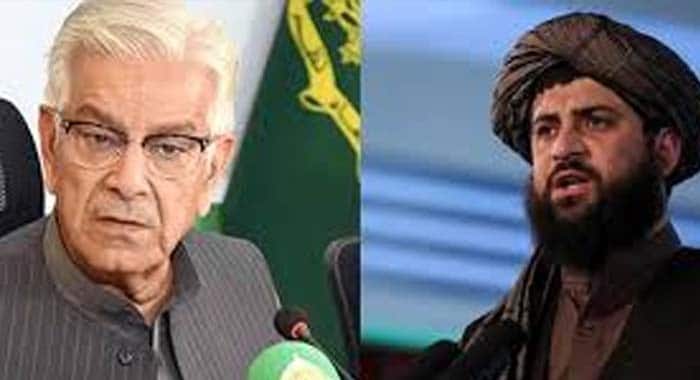A high-level Pakistani delegation is set to hold urgent talks with the Afghan Taliban in Doha following over a week of escalating border clashes between Pakistani security forces and Afghan-based terrorist groups. The negotiations, expected to take place in the coming days, are aimed at addressing the growing tensions and the ongoing cross-border violence.
For more than a week, fierce skirmishes have broken out along the Pakistan-Afghanistan border, particularly in areas like Bajaur, North Waziristan, and Lakki Marwat. Pakistani forces have conducted several precision strikes against suspected terrorist hideouts, while Afghan-based militant groups, including the Tehreek-e-Taliban Pakistan (TTP) and the Baloch Liberation Army (BLA), have launched multiple attacks, killing several Pakistani soldiers and civilians. Reports indicate that Afghan nationals have been involved in nearly 70% of these attacks.
Pakistan has repeatedly urged the Afghan Taliban to clamp down on these terrorist groups operating from Afghan soil. According to a Russian intelligence report, over 23,000 foreign fighters from more than twenty terrorist outfits are believed to be active in Afghanistan. Despite calls from regional powers like Iran, China, and Russia, as well as from global organisations such as the United Nations, the Afghan Taliban has continuously denied harboring these groups.
The talks come amidst growing fears of further destabilisation in the region. Recent actions, including the seizure of an explosives-laden vehicle in Bajaur and an increase in cross-border suicide attacks, have raised alarms about the Taliban’s lack of action in controlling terrorist activity. A recent visit by the Afghan Taliban’s Foreign Minister to Delhi, where he made anti-Pakistan remarks, has only added fuel to the fire.
Pakistan has made it clear that it will not tolerate the use of Afghan soil for launching attacks against its people. The delegation’s visit to Doha, mediated by Qatar, is seen as a critical opportunity to press the Afghan Taliban on their international obligations to prevent cross-border terrorism.
The delegation will push for verifiable action by the Taliban to dismantle terrorist networks operating from Afghanistan. Despite the recent military responses, Pakistan remains committed to finding a peaceful resolution to the crisis, though it insists that its sovereignty and security are non-negotiable.
The talks in Doha are expected to play a crucial role in determining the future of relations between Pakistan and Afghanistan, and could mark a turning point in addressing the growing cross-border threat to regional stability.
For over a week, tensions have flared along the Pakistan-Afghanistan border. The ongoing clashes have included several attacks on Pakistani forces, particularly from groups based in Afghanistan, and have prompted retaliatory airstrikes from Pakistan’s military. The precise nature of these skirmishes and the use of foreign fighters in these attacks have underscored the role of the Afghan Taliban in either indirectly or directly enabling such cross-border violence.
The international community has expressed concern over the escalating situation. Countries like China, Iran, and Russia, along with the United Nations, have urged the Taliban to curb terrorist groups like the TTP among others, which is believed to be responsible for much of the violence in Pakistan. However, the Taliban’s refusal to address these issues directly has led to Pakistan pushing for more serious engagement.
As talks get underway, all eyes are on whether diplomatic dialogue can end the cycle of violence and foster a more stable relationship between the two neighbours.





